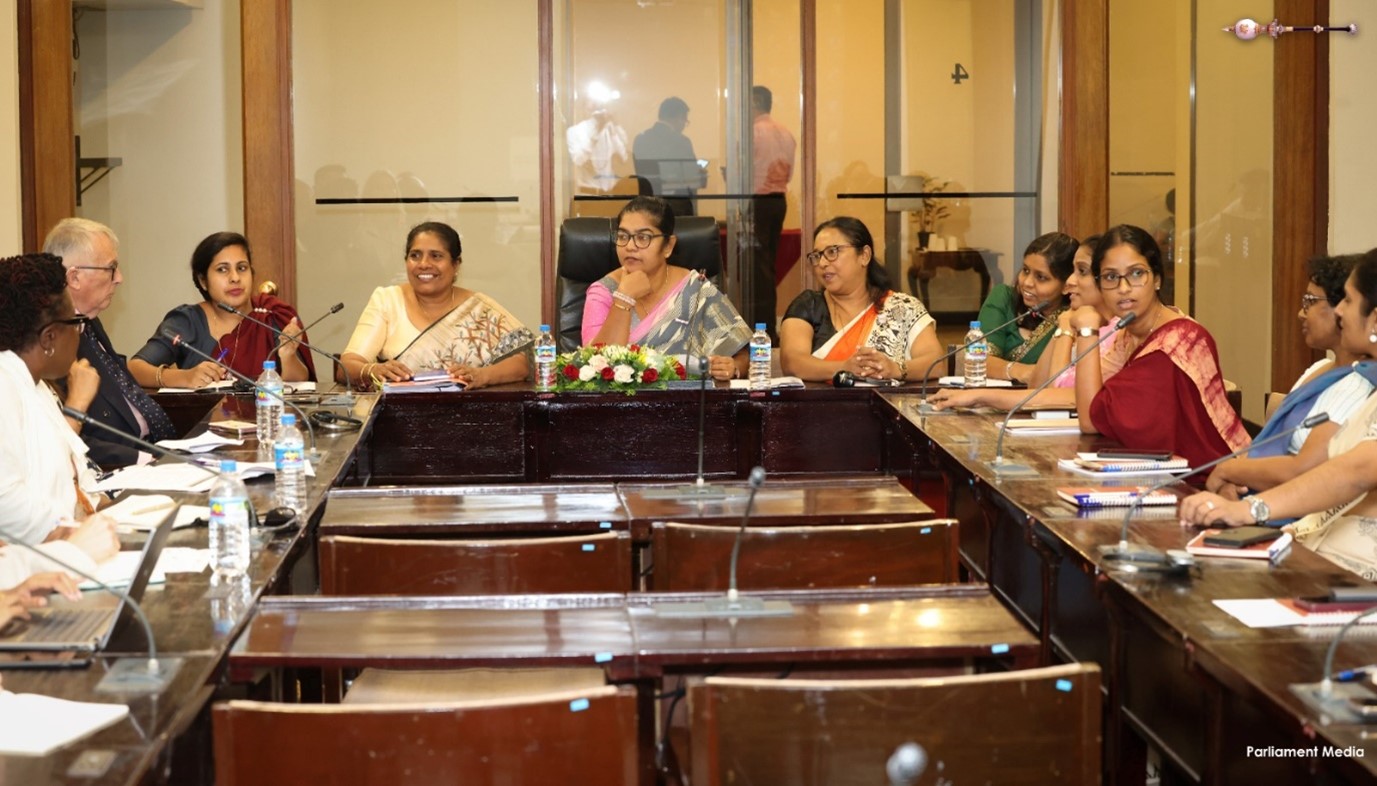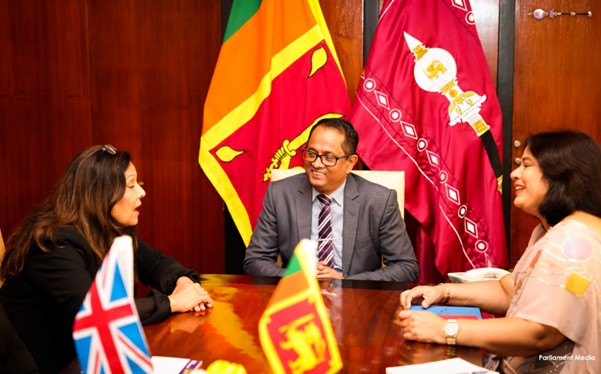More Women Getting Into Sri Lankan Politics
Published 23 October 2025
Exploring Women’s Representation: Discussions with the Women Parliamentarians’ Caucus of Sri Lanka
Supporting women in parliaments is a key priority for CPA UK.
In July a cross-party UK delegation visited the Parliament of Sri Lanka.
UK MPs and officials met the Sri Lankan Women’s Caucus. This is a coalition of female politicians from different parties who work to strengthen the voice of women in the parliament and increase the number of women parliamentarians.
About the Visit
Jointly organised by CPA UK and Westminster Foundation for Democracy (WFD), the visit was a great success in bringing together UK and Sri Lankan parliaments. The delegation included members from across the political spectrum. The core of the visit was the New Members Programme – a valuable opportunity for knowledge exchange between members and officials from both parliaments.
The programme was particularly timely after dramatic 2024 elections in both Sri Lanka and the UK. In Sri Lanka, the National People’s Power (NPP) party went from just three seats to a parliamentary majority. As a result, the parliament of 225 seats consists of 150 first-time MPs. A milestone 22 women MPs were elected. In the UK, just over half of the MPs were newly elected – 335 out of 650.
The delegation conducted several diplomatic engagements during the programme including high-profile meetings with the Prime Minister Harini Amarasuriya MP, Speaker Dr. Jagath Wickramaratne, Opposition Leader Sajith Premadasa and Deputy Foreign Minister Arun Hemachandra.
More information about the visit to the Parliament of Sri Lanka and New Members Programme can be found in our report.
Click here to read the report.
Meeting the Women Parliamentarians‘ Caucus
The meeting was opened by the Chair of the Parliamentary Women’s Caucus, Hon. Saroja Paulraj, MP. She explained how it was established to promote women’s political participation and empowerment and to push the government on issues that affect women.
The Caucus is prioritising the introduction of quotas for women's representation in the parliament. It will work with party leaders to achieve this. This important step is already successfully in place in some other Commonwealth countries in South Asia such as India and Pakistan. Meanwhile in the UK, mechanisms to increase representation fall within the remit of political parties, including all-women shortlists and support networks. The Sri Lankan Caucus is also aiming to introduce gender-responsive budgeting. This is a strategy that analyses budget to ensure a fair distribution of resources and gender inequalities can be addressed.
The Caucus also highlighted broader gender equality goals, including:
- Recognising unpaid care work and closing the gender pay gap
- Supporting caregivers and increasing women’s labour force participation (with a particular focus on promoting greater ethnic diversity)
- Raising the marital age for Muslim girls to 18
- Tackling sexual and gender-based violence
- Creating safer, gender-sensitive public transport
The Caucus celebrated the landmark Women’s Empowerment Act 2024 which passed at the end of the previous Parliament and is now being implemented: a big step towards achieving the goals of the Caucus. The Act established a National Commission on Women which has a variety of powers to protect and strengthen women’s rights, provides legal mechanisms to address gender-based violence and establishes a National Fund for Women.
There was a lot to discuss with the UK delegation about both positive initiatives and hurdles for women’s representation in Parliament. The UK and Sri Lanka have much in common when discussing how Parliaments need to adapt to be modern workplaces and tackle hostility from the media and social media, which both disproportionately affect women.
Building Gender-Sensitive Parliaments
What is clear in Sri Lanka and the UK is that the importance of representation by women in parliaments cannot be understated. Gender-sensitive parliaments can deliver benefits for all and contribute to more inclusive and effective governance.
As many parliaments across the Commonwealth face similar challenges, there is great opportunity for mutual learning. CPA UK is looking forward to upcoming visits to Westminster from the Pakistan Women’s Caucus, the Kenya Women’s Parliamentary Association and women members of the Nigerian Parliament. Collaboration with the Sri Lankan Women’s Caucus is also one future area for exploration in work between the Parliament of Sri Lanka, CPA UK and WFD, building on the connections forged during this programme.

UK delegation meets the Sri Lanka Women Parliamentarians' Caucus

Yasmin Qureshi MP meets the Speaker and Secretary-General of the Sri Lankan Parliament